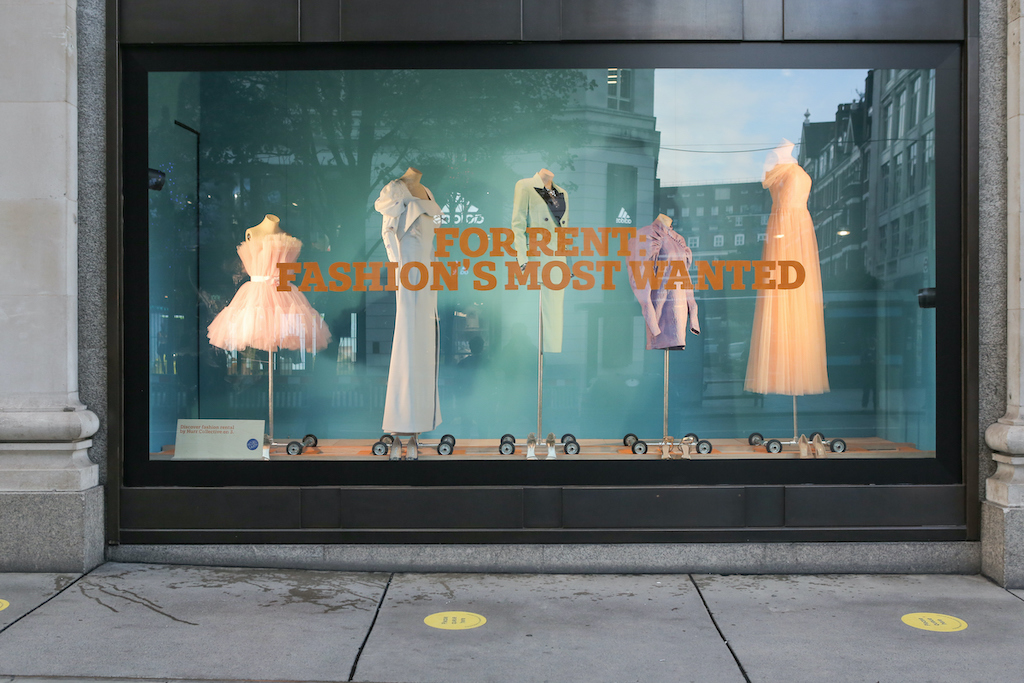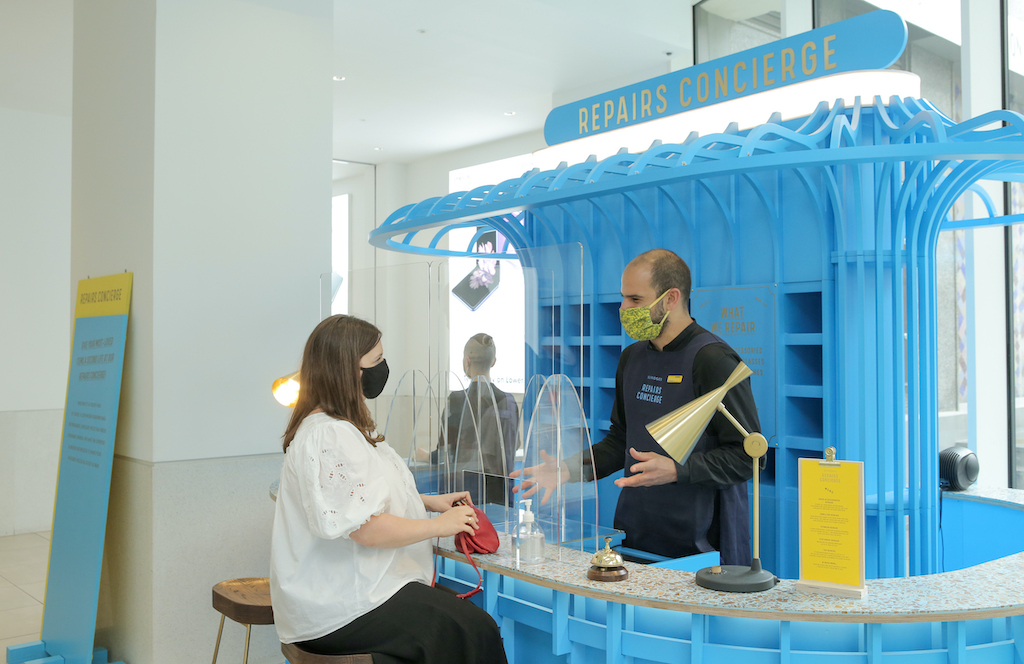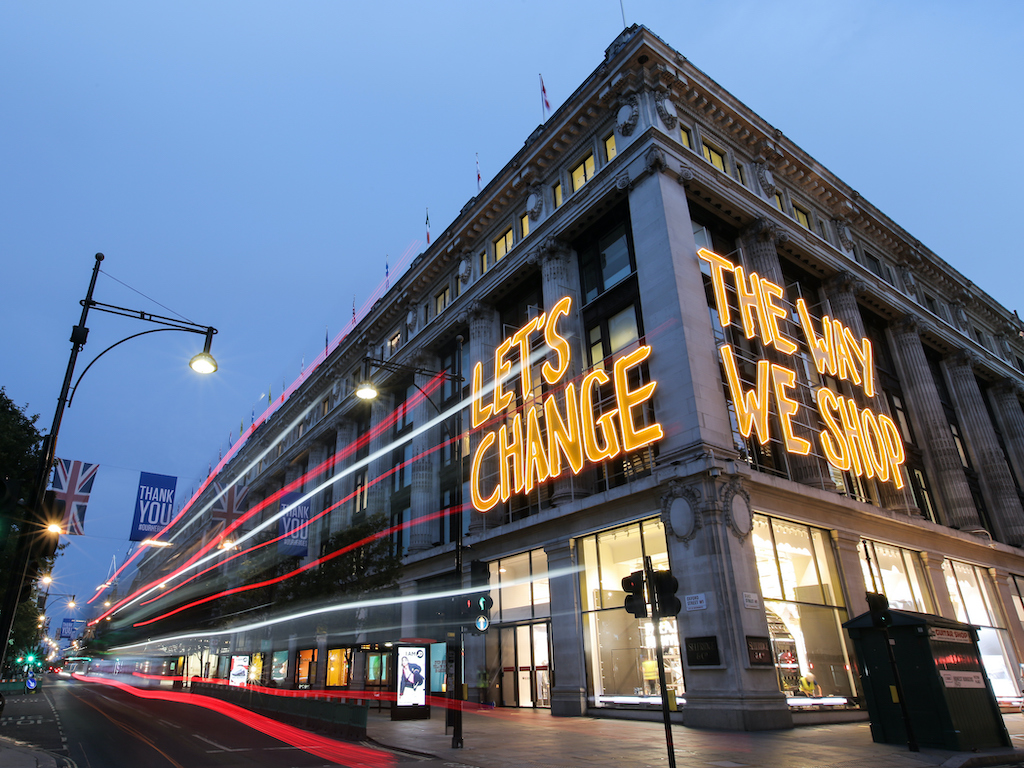4 Mins Read
Selfridges & Co., also known simply as Selfridges, has launched a new sustainability initiative called “Project Earth” and made five-year commitments to green its operations. The high-end department store says that it will take a three-pronged approach, including exploring new circular retail models, using more sustainable materials in products and ultimately, to “inspire a shift in mindsets”. With the traditional brick-and-mortar retail sector struggling to stay afloat, the move by the department chain giant represents a frantic effort to retain customers amid the rising conscious consumerism trend.
Dubbed “Project Earth”, Selfridges says that its new sustainability initiative will seek to “change the way we shop and the way it does business”. The project will kick-off with eight weeks of experiments, discussions and innovations dedicated to reinventing their retail models along with over 300 of their brand partners and with support from environmental nonprofits such as the WWF and Woodland Trust.
Over the next five years, the luxury department store will work on three main goals in order to achieve the overall target of net-zero carbon by 2050. By 2025, Selfridges says that it will ensure that all materials used throughout its business will come from certified sustainable sources, that its brand name will become “synonymous” with circularity by introducing repair, resell, rental and refill services, and to influence mindset changes amongst its partners, teams and customers.
Project Earth is not only our bold, new commitment to stretching environmental targets, it is about imagining new ways to do business, within the next five years.
Alannah Weston, Group Chairman of Selfridges

According to Selfridges, they are the first high-end department store to set tough material requirements as a part of its pledge to Scope 3 carbon reduction target in goods and services.
“Project Earth is not only our bold, new commitment to stretching environmental targets, it is about imagining new ways to do business, within the next five years,” said Alannah Weston, Selfridges group chairman, in a statement.
Some of the project collaborations that will come out of this new initiative includes exclusive collections from Prada, HURR, Harper Collective and Levi’s. Having launched its refurbishment services across select department stores last year, Selfridges will also launch Resellfridges this coming September, representing its first own-brand resale model for vintage, preloved and archive fashion items.
In addition, the chain will be rolling out new labels across its collections to communicate to consumers which items contain recycled or organic materials, and which products are vegan-friendly and are free of all animal-derived ingredients.
Selfridges’ latest sustainability pledges come during a tidal wave of corporations ramping up their climate ambitions in recent weeks. Firms and brands have come under greater spotlight for their responsibility over climate action amid the coronavirus pandemic, which has spotlighted the dangers of continued destruction of the natural world.

In a way we never could have predicted, the cycle of consumption has been broken by the pandemic marking a moment of change in our customers to a more considered mindset and requiring us to set new expectations for retail.
Anne Pitcher, Global Managing Director of Selfridges Group
Traditional brick-and-mortar retail stores like Selfridges have experienced particular hardship after what has been years of downturn due to the rise of e-commerce, and this latest move is no doubt an effort to retain consumers, who have proven to be increasingly loyal to purpose-led businesses and willing to boycott brands that fail to show genuine leadership in climate action.
“Out of the global pandemic has come an understanding of how fragile and complex our systems are, but also how our planet and people can benefit if we act collectively with a shared purpose,” said Weston. “Now more than ever we must double down on our efforts to reinvent retail with sustainability at its heart and a way of working which is regenerative for humans and nature.”
Anne Pitcher, global managing director of Selfridges Group, added: “In a way we never could have predicted, the cycle of consumption has been broken by the pandemic marking a moment of change in our customers to a more considered mindset and requiring us to set new expectations for retail.”
All images courtesy of Matt Writtle / Selfridges.




